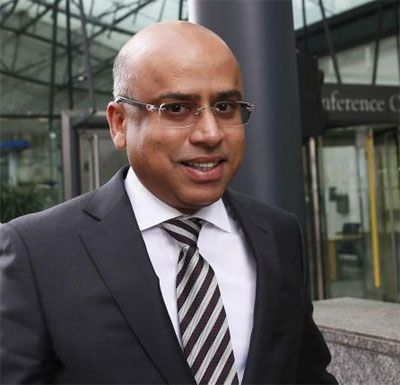Gupta has expressed an intent to buy Port Talbot, Britain’s biggest steelworks
 At 44, Liberty House owner Sanjeev Gupta is making headlines for going against the trend of bringing the curtains down on the British steel industry.
At 44, Liberty House owner Sanjeev Gupta is making headlines for going against the trend of bringing the curtains down on the British steel industry.
Last week, Tata Steel finally gave up on the UK units that came with the Corus acquisition in 2007, and said all options, including a potential divestment, were being weighed. The move has put 15,000 jobs at risk. The Indian steel major, however, is no oddball here; British steel industry is just a shade of what it used to be in its heydays in the 1970s when it was a steel-making superpower.
In October, Thailand’s SSI-owned Redcar steelworks decided to close down its UK units; the move affected some 2,000 jobs. Later that month, Caparo Industries filed for administration, threatening 1,700 jobs. But Sanjeev Gupta has stepped onto the scene as Britain’s white knight.
In November, hundreds of Caparo’s jobs were saved as Gupta bought Caparo Tubular Solutions, the core business of Caparo Industries. And that’s just one of the many deals he has struck in recent months to save British steel companies.
Liberty House reopened a steel mill in Newport, in south Wales, last year after working on it for two years. Gupta has also bought two mills in Scotland that belonged to Tata Steel. But the big rescue is still in the making.
Gupta has expressed an intent to buy Port Talbot, Britain’s biggest steelworks. Though Liberty House is said to be approaching a turnover of $5 billion, according to its website, the Port Talbot deal, if it materialises, would certainly be an ambitious one.
The curious thing is that Gupta believes it’s possible to turn around the plant without any job losses. The strategy is to overhaul the steel-making process from an expensive blast furnace technology to the electric arc furnace route using scrap as raw material. This is baffling as electric arc furnace happens to be energy intensive.
Experts are raising questions about the feasibility of such a technology switch as also the financial muscle to pull through the acquisition, but Gupta, it appears, is willing to put in money and time to make it happen.
Those who know Gupta credit him for walking the talk. After all, when it comes to business, Gupta is no greenhorn. He comes from a successful business family that once owned Victor Cycles in Punjab.
In 1995, Gupta graduated from the University of Cambridge and it was during these years that he started his business from a student apartment. After trading various commodities in markets across Asia, Europe and Africa, his focus turned to growing the trade in steel, metals and raw materials from 2000 onwards.
Today, Liberty House operates from four financial hubs — London, Dubai, Singapore and Hong Kong— and has interests in a wide range of strategic assets in Asia, Africa and the UK. It employs 2,000 people globally and the steel-making capacity in the group is in excess of three million tonnes.
The achievements sit lightly on his shoulders, says an Indian steel producer. But the bid to acquire Port Talbot would probably go down as the biggest contrarian bet in recent times.
Photograph: Stefan Wermuth/Reuters












 © 2025
© 2025